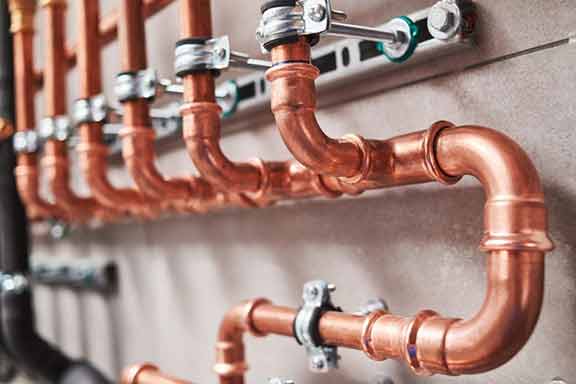The plumbing system in a residential building and that of a commercial building do the exact same thing. They transport drinking water into the building while carrying wastewater away without polluting the clean water supply. But this is almost where the similarities end. Due to their sheer size, commercial plumbing systems are a lot more complicated than residential systems.
Unlike, residential plumbing systems where homeowners can easily resort to DIY, RealEvate Specialists says, commercial plumbing systems don’t lend themselves very well to that kind of approach. Commercial plumbing systems are what you find in office complexes, multipurpose buildings, retail centers, or apartment complexes.
They are distinct from residential plumbing systems in the following ways:
The complexity of the building
Commercial buildings often have many floors with several of the sinks and toilets in the facility being used at the same time throughout the day. Due to the daily level of use, managing a commercial plumbing system is complicated.
The size of the plumbing system
The size of commercial buildings means their plumbing systems are extensive. Problems in one part easily spread to other parts. However, although finding the cause of problems is harder, issues must be fixed quickly because of the number of people they can affect.
The risk of damage is higher
The potential costs of problems in a commercial plumbing system are higher. In addition to inconveniencing the users of the building, there is a risk that the productivity of the various businesses in the building will be impeded.
This is why it is vital to be able to tell when there are problems in a commercial plumbing system. Speedy detection and resolution of issues are critical. Even if there is a designated commercial plumbing company to deal with problems, it pays for the manager to be able to identify early signs of trouble.
What are the signs of problems in a commercial plumbing system?
Clogged drains
Clogged drains are a huge nuisance because they don’t allow the free flow of wastewater. If the problem is not attended to at once, it can get progressively worse until the drain is completely blocked.
Falling water pressure
This often indicates a leak or blockage in the system. Knowing which sections of the building have this issue can help you pinpoint the location of the problem. In any case, this is something you need to notify your plumber of immediately.
Spikes in your water bill
If, for no apparent reason, the water bill increases above what you are accustomed to paying, contact a local commercial plumber. Nine out of ten, inexplicably high water bills are due to leaks in the system.
Dripping faucets
This problem will also escalate your monthly spending on water. Dripping faucets are easy to fix; all that is required is to replace the faucet’s internal washer. But the problem is also very easy to overlook due to the number of faucets in the building.
Running toilets
This is yet another one of the main causes of spikes in the water bill. Drip by drip, given the number of toilets in a commercial building, this problem can push your water bill through the roof.
Tinted or discolored water
Corrosion in pipes, especially metal pipes, is usually the prime culprit in this situation. Somewhere in the system, there is rust that is responsible for the strange color of the water.
Damaged pipe or tubing
Pipes need to be constantly monitored for signs of wear and tear. Dents, dimples, flaking, and discoloration are some of the signs of damage to look for on your pipes.
Bad odors
Unpleasant odors emanating from the drains could be the result of sewer gas leaks, clogged toilets, or the proliferation of bacteria. A commercial plumber will help you find the cause of the problem.
Changes in the appearance of your landscaping
Uncharacteristically green patches of grass, strange spurts of plant growth, or erosion on the building foundation are all signs that a sewer line or an underground water pipe may be leaking.
Wet floors
If a sink or toilet is leaking, water can find its way to the floor around the area of the sink or toilet. If you find that the floor around a sink or toilet is perpetually wet, you may have a leak.
Strange noises from the plumbing
Gurgling sounds and other strange noises from the plumbing are often a sign of failing or failed pipes or valves. Unusual sounds from the plumbing system should be investigated by a commercial plumber.
Broken water heater
There are several things that can go wrong with the water heater; a pilot light that is not working, the buildup of sediment in the tank, malfunctioning thermostat, and leaking water pipes.
Water damage
This is easily the most expensive problem you can have in your commercial building. Water damage is hard to detect because it often happens in out-of-the-way places like under the sink and inside walls. To detect water damage before it becomes a major problem you should inspect your building regularly for early signs of the problem.
